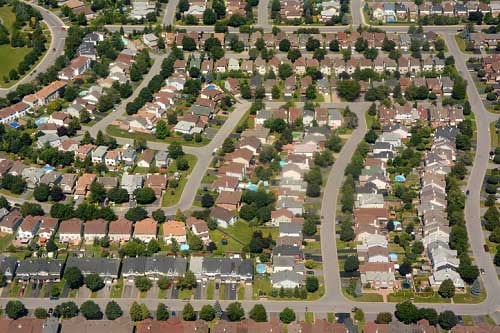Average prices posted some increases, however

Toronto residential real estate sales continued to exhibit a marked decline amid pressure from tougher mortgage qualifications and rising interest rates, although prices showed signs of stabilization.
Sales in Canada’s once-hot housing market fell 35% from a year earlier to 5,175 units, according to data released Tuesday (March 6) by the Toronto Real Estate Board. It was the weakest month of sales for February since 2009.
Benchmark prices, which are weighed to account for differences in home type, rose 3.2% from a year earlier, driven largely by apartments and townhouses. Average prices across all housing segments also rose compared to last month, though detached home prices decreased by 17% to $1,000,736 from the price spike seen in February a year ago.
Read more: Toronto keeping watchful eye
Canada’s biggest housing market has been correcting over the past few months amid a flux of regulations put in place to steady booming prices and increasing debt. The market has been on edge this year as mortgage guidelines came into effect, making it harder for prospective buyers to qualify for loans. With interest rates set to rise, buyers are waiting to see if the market will buckle under pressure.
“Prospective home buyers are still coming to terms with the psychological impact of the Fair Housing Plan, and some have also had to re-evaluate their plans due to the new OFSI-mandated mortgage stress test guidelines and generally higher borrowing costs,” TREB president Tim Syrianos stated, as quoted by Bloomberg.
New listings jumped 7.3% from last year to 10,520, though this remained below average for the month of February over the past decade. Average home prices fell 12% from last year’s peak.
Still, the industry group is expecting the housing markets to stabilize further moving into spring and summer months relative to 2017.
“Expect stronger price growth to continue in the comparatively more affordable townhouse and condominium apartment segments,” TREB director of market analysis Jason Mercer explained. “Listings supply will likely remain below average in many neighbourhoods in the GTA, which, over the long-term, could further hamper affordability.”



